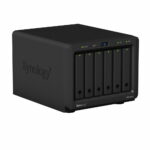In the dizzying digital age in which we find ourselves immersed, data storage plays a fundamental role in our daily lives. From important documents to multimedia files, space to store valuable information is essential. Two leading technologies have gained attention in this field: solid state drives (SSD) and hard drives (HDD). In this comparison, we will explore the features, advantages and disadvantages of both options to help you make an informed decision about which is the best option for your storage needs.
The Speed: SSD Gets Ahead
One of the most critical factors when considering storage options is speed. This is where SSDs take the lead impressively. SSDs, based on flash technology, offer significantly faster read and write speeds compared to conventional hard drives. This speed translates into a smoother user experience, shorter boot times, and improved responsiveness in multitasking applications and processes.
Capacity and Price: HDD in the Lead
While SSDs excel at speed, hard drives continue to lead in storage capacity at a lower cost. For example, you can purchase a high-capacity hard drive for a fraction of the price of an equivalent SSD. This makes hard drives an attractive option for those who need to store a large amount of data without spending a fortune. However, it is important to note that the gap in capacity between SSD and HDD is decreasing with technological advancements.
Durability and Reliability: SSD on the Rise
When it comes to durability and reliability, SSDs are gaining ground. Unlike hard drives, which use moving parts susceptible to physical damage, SSDs lack these mechanical parts. This makes them more resistant to shocks, vibrations, and accidental drops, making them a preferred choice for laptops and mobile devices. Additionally, SSDs also have a lower long-term failure rate, meaning your data will be safer over time.
Energy Efficiency: SSD Wins
In a world where energy efficiency is increasingly important, SSDs also have the advantage. They consume significantly less power compared to hard drives, which not only reduces environmental impact but also extends battery life in portable devices. This feature makes SSDs ideal for those who value battery life and want to contribute to sustainability.
Final Conclusions: The Choice Depends on Your Needs
Ultimately, choosing between an SSD and an HDD depends on your specific needs. If you’re looking for unmatched speed and responsiveness, along with increased durability and power efficiency, an SSD is the obvious choice. However, if your priority is to store a large amount of data at a lower cost, hard drives are still a solid choice.
In short, both SSDs and HDDs have their own advantages and disadvantages when it comes to data storage in the digital age. Technology continues to evolve, and we may see more convergence between these two options in the future. In the meantime, evaluate your needs and priorities before making an informed decision about which option is best for you. Whether you choose the blazing speed of an SSD or the ample capacity of an HDD, you’ll be taking an important step in effectively managing your data in this exciting, ever-changing digital world.
In our online catalog we have a wide range of SSDs and HDDs for data storage, you can find them at the following link.






